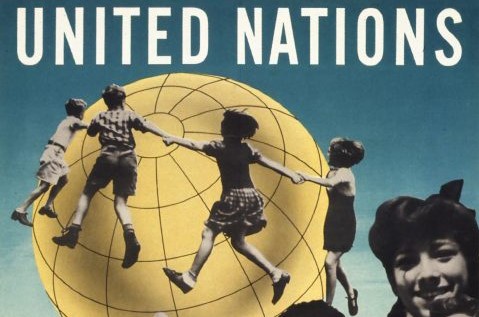It’s time for INGOs to stop living with their parents
DOI:
https://doi.org/10.21153/thl2023art1808Keywords:
INGOs, Foucault, consolidated humanitarianism, United Nations, UNAbstract
Drawing on Michel Foucault’s philosophical theory of a power triangle, this paper explores the relational dynamics between International Non-Governmental Organisations (INGOs), the United Nations (UN), and sovereign states. It reflects on the emergence of multilateral aid after World War Two and how aid became institutionalised and professionalised, resulting in a relational dynamic between INGOs, the UN and Western governments that is akin to a parent and child. The paper then considers how different actors in humanitarianism occupy different power types, and the impact this will have on the relevance of INGOs in the future. It concludes with a proposition for repositioning and rethinking INGOs in the next era of aid, as part of a reidentification of their role in humanitarianism.
Metrics
Downloads
References
ALNAP. (2022, October 28). 2022 SOHS report. Retrieved from ALNAP: Strengthening humanitarian action through evaluation and learning: https://sohs.alnap.org/sohs-2022-report/a-reader%E2%80%99s-guide-to-this-report
Anonymous. (2017, December). Annual Pan-Africa Advocacy Workshop.
Baiden, M., & Book, M. (2022). INGOs & The Long Humanitarian Century. Oxford: Nuffield College, University of Oxford.
Barnett, M. (2011). Empire of Humanity. Ithaca: Cornell University.
Barnett, M., & Stein, J. G. (2012). Sacred Aid: Faith and Humanitarianism (1st ed.). Oxford: Oxford University Press.
Brauman, R. (1995). Interview with Rony Brauman. Paris: ENA Mensuel.
British Government. (n.d.). Parental rights and responsibilities. Retrieved March 24, 2021, from https://www.gov.uk/parentalrights-responsibilities
de Waal, A. (2018). Mass Starvation: The History and Future of Famine. Cambridge: Polity.
Dean, M. (2010). Governmentality: Power and Rule in Modern Society (Vol. 7). London: SAGE Publications Ltd.
Duffield, M. (2014). Global Governance and the New Wars: The merging of Development and Security. London: Zed Books.
Fiori, J., Espada, F., Rigon, A., Taithe, B., & Zakaria, R. (2021). Amidst the Debris: Humanitarianism and the End of the Liberal Order. London: C. Hurst & Co (Publishers Ltd.
Foucault, M. (1978). The History of Sexuality, Vol 1: an Introduction (translated by R. Hurley) (1st Edition ed.). New York: Pantheon.
Foucault, M. (1982). The Subject and Power. Critical Enquiry, 8(4), 777-795.
Gordon, S., & Donini, A. (2016). Romancing principles and human rights: Are humanitarian principles salvageable? International Review of the Red Cross, 77-109.
Kaldor, M. (2018). Global Security Cultures. Cambridge: Polity Press.
Mansuri, G., & Rao, V. (2013). Localizing Development: Does Participation Work? (1st ed.). Washington D.C.: The World Bank.
OCHA. (2022, 11 4). Humanitarian Aid Contributions. Retrieved from Financial Tracking Services: https://fts.unocha.org/
Orbinski, J. (2008). An Imperfect Offering: Huamnitarian Action in the 21st Century (1st ed.). Toronto: Doubleday.
Ould Mohamedou, M.-M., & Sisk, T. D. (2017). Democratisation in the 21st Century: Reviving transitology. Abingdon: Routledge.
Peters, L. (2015). Sovereignty: The UN and the Westphalian Legacy. The United Nations, 69-80.
Powell, C. (2001, October 26). Remarks to the National Foreign Policy Conference for Leaders of Nongovernmental
Organizations. Retrieved from U.S. Department of State Archive: Information released online from January 20 2001 to January 20 2009: https://2001-2009.state.gov/secretary/former/powell/remarks/2001/5762.htm
Rieff, D. (2002). A Bed for the Night: Humanitarianism in Crisis (1st ed.). London: Vintage.
Sandvik, K. B. (2017). Stronger, Faster, Better: Three logics of humanitarian futureproofing. In V. M. Heins, K. Koddenbrock, & C. Unrau (Eds.), Humanitarianism and Challenges of Cooperation (pp. 97-112). Abingdon: Routledge.
Schmitter, P. C. (2017). From transitology to consolidology. In M.-M. Ould Mohamedou, Democratisation in the 21st Century (pp. 167-184). Abingdon: Routledge.
Slim, H. (2022). Solferino 21: Warfare, Civilians and Humanitarians in the Twenty-First Century. London: C.Hurst & Co. Ltd.
Terry, F. (2002). Condemned to Repeat? The Paradox of Humanitarian Action (1st ed.). Ithaca: University of California.
United Nations. (1945). United Nations Charter and Statute of the International Court of Justice. San Francisco: United Nations. Retrieved from www.UN.org: https://www.un.org/en/about-us/un-charter/full-text
United Nations General Assembly. (1991, December 19). A/RES/46/182. Retrieved from UN Official Document System: https://daccess-ods.un.org/tmp/1917462.79597282.html
Western, S. (2019). Leadership: A Critical Text. London: Sage Publications Ltd.
Yamashita, H. (2004). Humanitarian Space and International Politics: The creation of Safe Areas (1st ed.). Abingdon and New York: Routledge.







